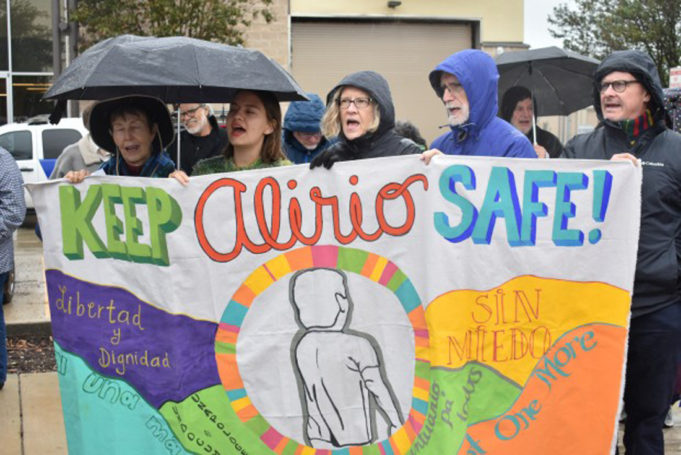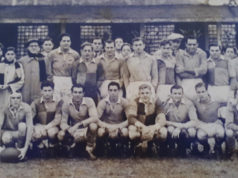After receiving death threats from a gang in El Salvador for refusing to join them in early 2017, Alirio Gamez fled to the United States, where he is currently seeking asylum.
Gamez is like thousands of other asylum seekers. He fled a country in fear of his life, hoping to find something better someplace else. He made his way through Guatemala and Mexico to an unnamed point on the Texas border, where he was picked up by Border Patrol while entering the United States illegally. He requested asylum. He was granted entry and driven to an immigration detention center. He passed his “credible fear” interview — which determines whether an asylum seeker has a legitimate reason to fear for his or her safety if he or she returns home — and a bond was set.
But Gamez was unable to pay his bond and spent the next several months shuttling between two detention centers, one in New Jersey and the other in Texas. A friend was finally able to pay the $5,000 bond, and Gamez was cut loose while awaiting his formal asylum hearing in Texas. That hearing occurred early last summer.
The immigration judge said he believed the life-or-death story that Gamez told but didn’t feel that the United States owed the immigrant anything.
Asylum request denied.
While awaiting a final deportation order, Gamez made his way back to Austin, where the Sanctuary Network became involved in his plight. Dedicated to creating safe environments for children and adults who have experienced extreme adversity, the nonprofit found him a place to reside at a church in Austin, where he has lived since late August.
We are leaving details of Gamez’s story obscured because he fears that the El Salvadoran gang will come looking for him, even in a church, if they discover where he lives. Or they might kill his family members still in El Salvador. Gamez is an alias to keep his real name protected. He has never been photographed. Even the point of entry where he was picked up has been purposely left out because of the threats to his life and the lives of anyone helping him. All of which makes Gamez a sort of invisible man.
But he’s not invisible. He’s in limbo. The same thing happens to thousands of people every year.
Gamez “has been staying with us since late August, and everyone at the church has fallen in love with him,” said Rev. Chris Jimmerson. “He is such a gentle soul.”
Jimmerson was one of dozens of pro-immigrant activists who descended on the U.S. Immigration and Customs Enforcement (ICE) offices in early December in San Antonio to demand that Gamez be given asylum.
Gamez stayed behind in Austin because the church “had no guarantee that he would not be immediately picked up” by ICE officers, Jimmerson said.
A contingent of the larger group went to the ICE office.
“We were immediately kicked off the property,” Jimmerson said. “But they said [Gamez’s] lawyer could come in and file the stay-of-removal paperwork he’d brought with him. Of course, when he went in to deliver it, no one would take it. They said they would only look at it if he came back with [Gamez]. But they would not guarantee that they would not detain him on the spot if he appeared.”
The meeting left everyone feeling as if they’re back to square one, Jimmerson said.
Alejandro Ceceres, from Grassroots Leadership, a nonprofit group working to end private prisons and one of the organizers of the San Antonio rally, is not as glum as Jimmerson.
“I’d say that we are trying to figure out whether prosecutorial discretion could be used to keep Alirio Gamez from being deported,” Ceceres said. “The thing is that the San Antonio ICE offices are no longer using the prosecutorial discretion they have in cases like this, where they have the discretion to deport someone or not” based on the merits of the case.
“Our feeling,” said Ceceres, speaking for Grassroots Leadership, “is that if they are deliberately not using that tool, well, we will need to put community pressure on those agents to get them to use it. There are 26 religious congregations that want Mr. Gamez to stay.”
Gamez is probably not important to most people. Just another illegal immigrant caught in red tape. But those who are protecting him, who know the details of his situation, who know him, say his life is hanging in the balance.
“If he is sent home, he’ll be killed,” Jimmerson said. “It’s that simple. To us, his is an important life.”












